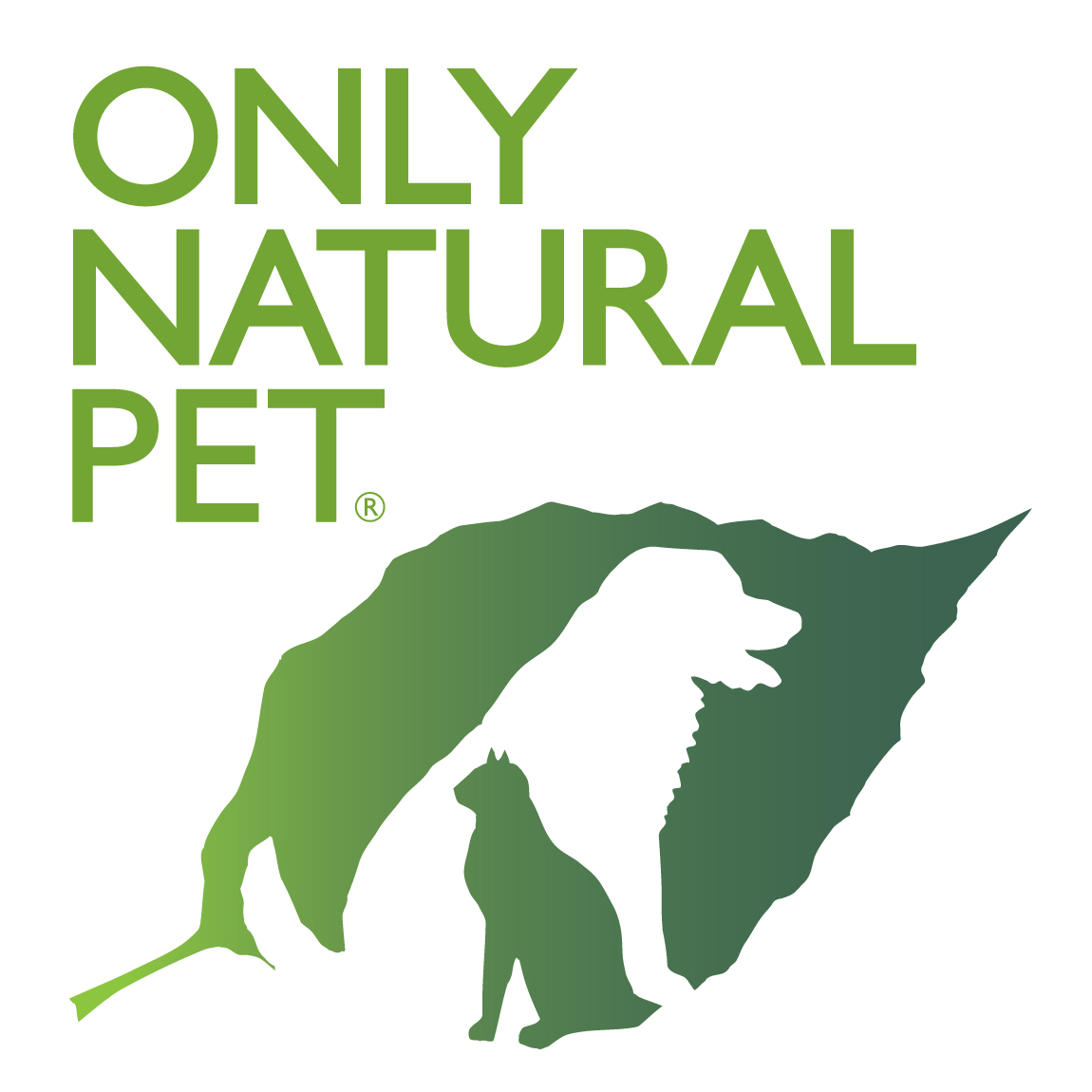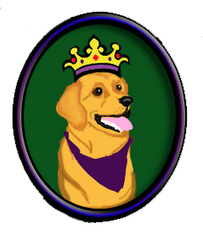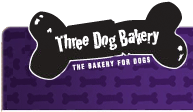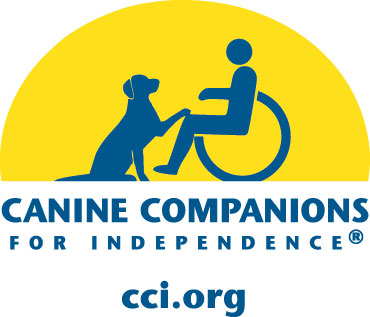Read more!

My next article was going to be on the nutrient value of commercial pet foods, but between my typical hectic schedule and spending the last week and a half fighting off some sort of nasty, stubborn virus...well, I I simply haven't had time to get the article written. The article below was suggested to me by someone from the Vet Tech Schools Online website. I will be posting my nutrient article later this week, barring any unforseen delays.
25 Common Foods That Can Be Toxic for Your Pet
Your pet’s health is fragile. Sure, pets were once wild animals, but don’t forget that your pet isn’t the same as a human. Although it may think otherwise.
Knowing what can harm your pet is the first step in illness and disease prevention. By avoiding harmful substances and foods, your pet will live a longer, healthier life, and your wallet will thank you too for avoiding veterinary bills that could have been prevented with a little caution and care. These 25 common household foods can be lethal to your furry or feathered buddy. Many of these examples are foods that a typical pet owner would never think twice about giving their dog, cat, hamster or bird, but your pets can suffer greatly from things we humans love to eat on a regular basis. As a pet owner, your best bet is to stick with veterinary approved foods specifically made for your pet.
- Fatty Meats like Ham - Fatty and greasy meats that people eat like ham or beef can seriously damage a dog’s pancreas and cause pancreatitis. Actually a high fat diet of anything is very bad for dogs and can lead to this serious and costly illness. Most dogs will recover from severe pancreatitis, but other complications can develop like diabetes. Avoid giving your pooch table scraps no matter how sad their eyes may be.
- Walnuts - Walnuts and their hulls are particularly poisonous to dogs and horses. Even laying on black walnuts can cause respiratory distress, stomach upset and laminitis, or the inability to move around. Dogs are more susceptible to black walnut poisoning after ingesting the hulls or shells of the nut. Dogs poisoned by walnuts will often vomit and have diarrhea.C
- Coffee and Espresso Beans - Coffee and espresso beans, as well as the grounds of both, can have strong side effects on dogs if ingested because of the caffeine in the beans. Dogs can experience excessive hyperactivity, restlessness, difficulty breathing, increased heart rate, seizures and tremors. Too much caffeine can also be fatal. If you suspect that your dog has eaten coffee beans or coffee grounds, look for signs of vomiting or diarrhea.
- Teas and Sodas - Teas and sodas are also bad for dogs because of the caffeine in them. Don’t let your dog eat the tea leaves either.
- Salt - Salt can seriously dehydrate dogs and cause gastrointestinal irritation. Depending on how much salt a dog ingests, the symptoms may be more or less severe. Symptoms include vomiting, diarrhea, drooling, excessive thirst, sluggishness and disorientation.
- Potato, Tomato and Rhubarb Leaves, Vines and Stems - The leaves, stems and other green parts of these roots and vegetables are highly toxic to most pets including birds. The leaves, stems and vines of these plants contain oxalates, which can harm the digestive, nervous and urinary tract. Symptoms of oxalate toxicity are dilated pupils, heart arrhythmias, irregular heart beat and tremors.
- Liver - A diet of too much liver can lead to vitamin toxicity. Liver flavored pet food and treats are fine to give to your furry friends though.
- Peaches - Peach pits contain small amounts of cyanide that can be toxic to all pets.
- Pears - Pear cores also contain trace amounts of cyanide. Avoid giving your pets pears, peaches and plums.
- Plums - Another pit that contains trace amounts of cyanide. These revelations may almost makes you want to give up the fruits yourself, but the cyanide levels contained in plums, peaches and pears are not harmful to humans.
- Fruit Pits like Cherry Pits or Apricot Pits and Apple Cores - Other fruit pits and cores like the kinds from cherries, apricots and apples also contain cyanide which is harmful to pets of all kinds. The fruit of apples are fine to give to pets, but be sure to core the fruit thoroughly first.
- Broccoli - In large amounts, broccoli can possibly be bad for pets. Gastrointestinal upset is common in livestock that are fed broccoli in excess of 10 to 25 percent of the animal’s diet. The same could be true for pets like dogs and cats, but since most people do not give their pets a diet consisting of 25 percent broccoli, the same conditions have not been recorded in great detail. Broccoli contains isothiocyanate, the tummy upset culprit. To be on the safe side, don’t give your pets the green stuff.
- Milk or Dairy Products - Just like humans, pets especially dogs can be lactose intolerant. Some cats and dogs will be able to digest dairy products with no problem, while others will get bad stomach aches. The ability to digest dairy products depends on a person or pet’s ability to produce an enzyme called lactase, which is used in the break down of lactose. Giving your pet a lick of your ice cream cone won’t kill it, but if your pet happens to be lactose intolerant you may be responsible for your pet’s tummy ache later.
- Tuna - Tuna seems like a natural choice to give your feline friend, but it can be toxic. Feeding a cat too much canned tuna can result in Steatitis or yellow fat disease, a painful inflammatory condition caused by a diet high in unsaturated fatty acids. Feeding your cat excessive amounts of canned or packaged tuna can also lead to mercury poisoning.
- Onions and Onion Powder - If a dog or cat ingests onions or even onion powder, the animal may develop a condition called Heinz body anemia, a form of hemolytic anemia that destroys red blood cells. Chives should also be avoided. Common signs that your dog has developed Heinz body anemia are pale gums, diarrhea, rapid heart rate, weakness, bloody urine, vomiting and lethargy. This particular type of anemia can also cause kidney damage. Cats are particularly at risk for this illness.
- Garlic - Garlic should not be given to cats or dogs since it can cause stomach and digestive problems. Garlic can also cause Heinz body anemia, a form of hemolytic anemia that destroys red blood cells. Small amounts of garlic can be given to pets, but is not recommended by the ASPCA’s Animal Poison Control Center.
- Yeast Dough - Yeast dough can rise in your pet’s stomach and cause major gastrointestinal issues like stomach or intestine ruptures. Fully baked bread is fine to feed pets in small amounts, but should not make up a significant portion of your pet’s diet.
- Macadamia Nuts - Giving a dog macadamia nuts can make it very ill. Veterinarians are not sure of the cause, but also recommend not giving macadamia nuts to other animals as well. Side effects from ingesting macadamia nuts include drooling, tremors, weakness in the hind legs, vomiting, diarrhea and lethargy. With proper care, most dogs make a full recovery within 48 hours according to CBS news.
- Avocados - Avocados should not be given to any pets since the fruit, its bark and the seed contain Persin. Persin can cause diarrhea and vomiting in dogs, and difficulty breathing, congestion and fluid build-up around the heart in birds and rodents. Cats, goats, cattle, rabbits and horses are also at risk for avocado poisoning.
- Grapes and Raisins - Grapes and raisins can be fatal if dogs ingest them in large quantities. There is no need to worry if your dog accidentally eats one or two grapes, but veterinary care may be needed if a whole bunch or box of the fruit is missing and your dog is looking guilty. Signs of toxicity include vomiting and diarrhea. Kidney failure can follow if the dog goes untreated over a period of as little as 24 hours according to Michael Richards, DVM.
- Alcoholic Beverages, Hops used in homemade beer brews and Tobacco - Alcoholic beverages and tobacco can cause vomiting, diarrhea, decreased coordination, central nervous system depression, difficulty breathing, tremors, abnormal blood acidity, coma and even death the ASPCA reports.
Hops, a type of plant used to brew beer, is toxic to dogs for unknown reasons. Reactions to ingesting hops include panting, high body temperature, seizures and death. - Candy and Gum Containing Xylitol - Xylitol, a sweetener used in candies and chewing gum, is extremely toxic to pets especially small pets. According the ASPCA Animal Poison Control Center, xylitol can cause liver failure and even death in dogs, cats and ferrets in as little as 30 minutes after ingestion from hypoglycemia, a sudden drop in blood sugar levels.
- Wild Mushrooms - Wild mushrooms can be very toxic to your pets. If your dog or curious cat happens to ingest some mushrooms growing in your yard or elsewhere, take the incident seriously since it’s hard to tell which mushrooms are poisonous and which are harmless. Poisonous mushrooms can cause kidney and liver damage, gastrointestinal problems and neurological trouble. If you suspect your pet has eaten any type of fungus, take it to the veterinarian immediately.
- Chicken Bones – All bones, not just chicken bones, are bad for your pet dog. Cooked bones have been softened and may splinter off in the dog’s mouth, stomach or digestive tract causing major problems. Chicken bones are a big no-no for dog-owners though since these bones tend to splinter easily.
- Chocolate - Everyone knows chocolate is toxic to dogs, but often not in what quantities. Chocolate, particularly baking chocolate that contains high amounts of cocoa, can be fatal to dogs depending on how much is ingested. For instance, if a 15 pound dog eats two ounces of baking chocolate it may be enough to cause severe heart, lungs, kidney or central nervous system damage and even death, but if the same dog ate only two ounces of milk chocolate, it will probably only experience some digestive issues according to Talktothevet.com. A dog would have to ingest a large amount of white chocolate to experience adverse effects.
The reason that dogs cannot eat chocolate is because of a chemical called theobromide found in cocoa. Signs of theobromide poisoning include restlessness, hyperactivity, tremors, seizures, problems walking normally, vomiting, diarrhea, abnormal heart rhythm, hyperthermia and coma. In some cases, theobromide can prove fatal for dogs.
Knowing how to keep your pet safe and happy is a top priority as a pet owner. Your pets aren’t just man’s best friend, they’re your best friend. It’s tempting to cave when you only want to treat your best friend, but discipline when it comes to food shows your pet that you care more even though those sad eyes may disagree with you at the time. Don’t feed your animals table scraps even if the scraps aren’t toxic or poisonous because you want your pets to around a long time to snuggle and love.
For more information on pet health and toxicity, visit the ASPCA’s Animal Poison Control Center website
Read More......


 Knock Knock carries Organizers, novelty gifts, unique stationery products, and fun greeting cards - Knock Knock has the great products for everyone on your list!
Knock Knock carries Organizers, novelty gifts, unique stationery products, and fun greeting cards - Knock Knock has the great products for everyone on your list! Read More......
Read More......












































